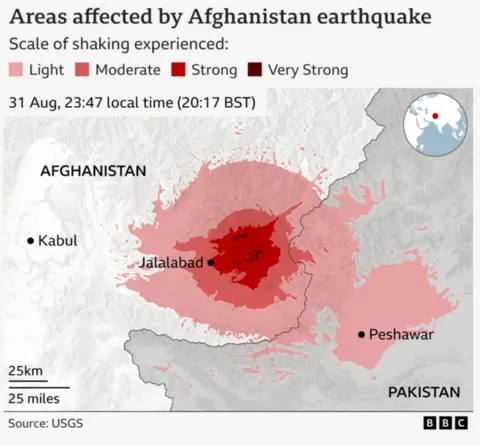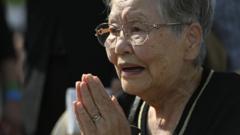Eighty years have passed since the liberation of Bergen-Belsen, yet the echoes of its horrors remain vivid in the memories of those who survived. On this solemn anniversary, more than a thousand individuals, including survivors and family members, gathered to honor the lives lost at the notorious Nazi concentration camp in northern Germany. The camp was liberated in April 1945 by British and Canadian troops, who were met with an unfathomable scene of devastation: approximately 13,000 unburied bodies and 60,000 emaciated survivors.
Among the attendees was Mala Tribich, who at 14 years old witnessed unimaginable suffering, recalling, "Belsen was a place of skeletons, where the dead were piled up and the living shuffled around... There was death everywhere." In her haunting account, Esther Alice, who was just 11 at the time, shared the painful memory of holding her mother as she took her last breath in hut 221.
As the sun graced the memorial events, the chilling reality of Belsen lingered in the air. British soldier Michael Bentine, who later became a notable entertainer, described Belsen as the "ultimate blasphemy." Richard Dimbleby, the first broadcaster to report on the liberation, etched the horrors of Belsen into history with his poignant words: "This day at Belsen was the most horrible of my life."
Unlike many other camps, Belsen's physical remains—the huts and barracks—stood intact, serving as a stark reminder of the suffering endured there. It became a convergence point for many prisoners from eastern camps and depicted the horrific outcomes of Nazi cruelty, with overcrowding and unsanitary conditions claiming countless lives. Between January and April 1945, the camp witnessed an alarming death toll of 30,000 prisoners, with many more perishing even after liberation due to health complications.
The latest commemoration featured representatives from the Jewish Military Association and dignitaries, including Deputy Prime Minister Angela Rayner, laying wreaths to honor the fallen. UK Chief Rabbi Sir Ephraim Mirvis read a psalm amidst the verdant landscape, where the remnants of the camp have been replaced with a visitor center and memorials that remember the truth of the atrocities committed.
The memorial inscriptions serve as solemn reminders of the lost lives, including one that reads: "Hier ruhen 5,000 toten"—here rest 5,000 dead. As survivors and their descendants remember the dark shadows of Bergen-Belsen, their stories continue to emphasize the importance of remembering history to prevent future atrocities.




















